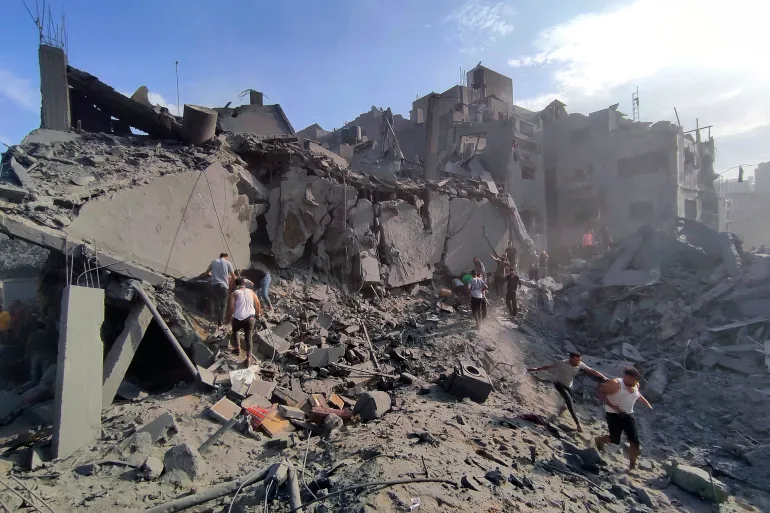The Gaza Strip is home to millions of individuals enduring severe hunger due to Israel’s devastating assault. The International Federation of Red Cross and Red Crescent Societies (IFRC) has urged for a ceasefire and unrestricted humanitarian access to the region.
Nearly seven months after Israel initiated a deadly offensive in response to the October 7 Hamas-led attacks, resulting in 1,200 casualties in Israel, Gaza, under siege, faces a dire humanitarian crisis.
In an interview in Manila, IFRC President Kate Forbes stressed the urgent need for a political resolution to secure a ceasefire for aid delivery.
Forbes, who assumed office as the second female CEO of the world’s largest humanitarian network in December, highlighted the crucial role of the IFRC, a volunteer-led organization comprising 191 agencies aiding in crises, including the Palestine Red Crescent Society, which provides ambulance services in Gaza.
Reflecting on her visit to Rafah in February, prior to Israel’s military intervention in the southern Gaza city, Forbes described witnessing appalling conditions, including inadequate housing, water scarcity, sanitation issues, and under-equipped hospitals, leading to food shortages.
As Israel persisted with its offensive in Gaza to dismantle Hamas, the possibility of renewed ceasefire talks in Gaza appeared promising over the weekend following the highest UN court’s order for Israel to halt attacks on Rafah.
Despite reports suggesting a potential resumption of negotiations earlier this week, Hamas denied such claims, with both sides attributing blame to each other for the impasse. While Palestinians seek the release of prisoners, Israel insists it cannot accept Hamas’ demand for war cessation.
Forbes pleaded with governments on all sides to engage in ceasefire negotiations to facilitate aid delivery, emphasizing her responsibility to ensure effective aid distribution once a ceasefire is established.










